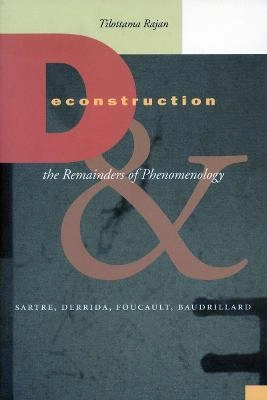

Deconstruction and the remainders of phenomenology : Sartre, Derrida, Foucault, Baudrillard
- Utgiven: 2002
- ISBN: 9780804745024
- Sidor: 392 st
- Förlag: Stanford, Calif. Stanford Univ. Press
- Format: Häftad
- Språk: Engelska
Om boken
Åtkomstkoder och digitalt tilläggsmaterial garanteras inte med begagnade böcker
Mer om Deconstruction and the remainders of phenomenology : Sartre, Derrida, Foucault, Baudrillard (2002)
2002 släpptes boken Deconstruction and the remainders of phenomenology : Sartre, Derrida, Foucault, Baudrillard skriven av Tilottama Rajan. Den är skriven på engelska och består av 392 sidor. Förlaget bakom boken är Stanford, Calif. Stanford Univ. Press.
Köp boken Deconstruction and the remainders of phenomenology : Sartre, Derrida, Foucault, Baudrillard på Studentapan och spara pengar.
Referera till Deconstruction and the remainders of phenomenology : Sartre, Derrida, Foucault, Baudrillard
Harvard
Oxford
APA
Vancouver



















